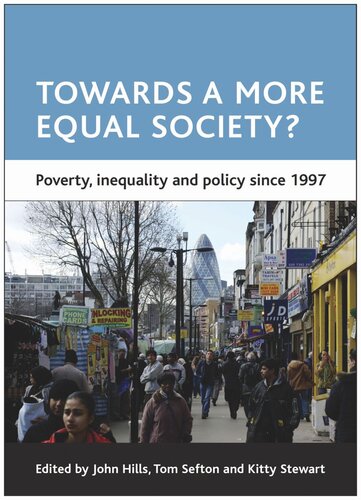

Most ebook files are in PDF format, so you can easily read them using various software such as Foxit Reader or directly on the Google Chrome browser.
Some ebook files are released by publishers in other formats such as .awz, .mobi, .epub, .fb2, etc. You may need to install specific software to read these formats on mobile/PC, such as Calibre.
Please read the tutorial at this link: https://ebookbell.com/faq
We offer FREE conversion to the popular formats you request; however, this may take some time. Therefore, right after payment, please email us, and we will try to provide the service as quickly as possible.
For some exceptional file formats or broken links (if any), please refrain from opening any disputes. Instead, email us first, and we will try to assist within a maximum of 6 hours.
EbookBell Team

0.0
0 reviewsWhen New Labour came to power in 1997, its leaders asked for it to be judged after ten years on its success in making Britain 'a more equal society'. As it approaches the end of an unprecedented third term in office, this book asks whether Britain has indeed moved in that direction. The highly successful earlier volume A more equal society? was described by Polly Toynbee as the LSE's mighty judgement on inequality. Now this second volume by the same team of authors provides an independent assessment of the success or otherwise of New Labour's policies over a longer period. It provides: · consideration by a range of expert authors of a broad set of indicators and policy areas affecting poverty, inequality and social exclusion; · analysis of developments up to the third term on areas including income inequality, education, employment, health inequalities, neighbourhoods, minority ethnic groups, children and older people; · an assessment of outcomes a decade on, asking whether policies stood up to the challenges, and whether successful strategies have been sustained or have run out of steam; chapters on migration, social attitudes, the devolved administrations, the new Equality and Human Rights Commission, and future pressures. The book is essential reading for academic and student audiences with an interest in contemporary social policy, as well as for all those seeking an objective account of Labour's achievements in power.